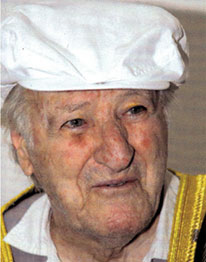Sulaiman al‑Issa was born 1921 in the village of Noayriyeh ‑ Oronte orchards, situated 20 Km to the west of the historical Syrian city of Antakya .
– He received his first education under the mulberry tree shadowing the house yard . He learned the Holy Qoran, the famous preislamic poems ( Mu’allaqat ) which were hung in the Holy Ka’ba , the famous Mutanabbi collection of poetry, and a great many other Arabic poems. The village had no other school but the traditional Kuttab , which was also the poet’s home . His father lived and taught there.
– He started writing poetry at the age of ten and his first collection described the misery and weariness of the peasants .
– His primary education took place in Antakya. When he started school he was so advanced that he was placed immediately into the fourth class . By that time the district of Al ‑Liwa , which included Antakya, was in a stage of revolution due to the Arab inhabitants discovering the plan of the French (who had a mandate in Syria at this time) to separate the area from Syria and offer it to Turkey .
– During his fifth and sixth grades in Primary school his poetry contributed to the demonstrations and national fight of his fellow ‑ citizens of Liwa Iskenderun.
– After the Turkish aggression on his native district he emigrated to other parts of Syria to continue with his friends, the fight against the French Mandate . He continued his education in secondary schools at Hama ; Lattakia and Damascus . In that period of his life he experienced the bitterness of homelessness and began to realize the importance for him of fighting for Arab unity, independence and freedom .
– He shared in the foundation of the Ba’th party While still at secondary school in Damascus
– After graduation he returned to Syria to take up a post as teacher of Arabic language and literature in a secondary school in Aleppo .
– He lived in Aleppo from 1947 to 1967 teaching, Writing and sharing in the national struggle
– In 1950 he married and had two sons and a daughter.
– In addition to Arabic and some Turkish ; he also speaks French and English .
– He has travelled extensively in the Arab world and has also visited many other countries .
In 1967 ,he started writing for children and made it his primary concern .
– His biography for children written in poetry and then in prose , was entitled ‘I am telling you my childhood , O small ones’ His second autobiography was ‘The child Waïl in his search for his homeland’.
– In October 1982 he received the Afro – Asian Writers’ Union Lotus Prize for poetry .
– In 1984, his poetical works for children received the price of the Arab League, Educatinal, cultural, and Scientific Organization.
– In 1990, he was elected as a member of the Arab Language Academy (Damascus).
– In 2000, he received The Babatin Prize for poetical creativity.
Books by the poet
– The Poetical works (4 volumes), Beirut, al-Mu’assassa al ‘Arabiyya, 1995.
– The path of a life time (Autobiographical Highlights, Beirut, al-Mu’assassa al-Arabiyya, 1996.
– Al-Thumâlât (5 volumes), General Institution for the Book, Sanaa, 1999, 2004, 2005.
The Divan for children, Dar al-Fikr, Damascus, 1999.
– The Divan of Yemen, General Institution for the Book, 1999.
– The Divan of Palestine, Palestine’s House, Damascus, 1999.
– The Divan of Algeria, Algiers, 1995.
– The Divan of Lebanon, Ministry of culture, Damascus, 2006.
– The Woman in my poetry, Abu Dhabbi, 1998.
– Collections of Stories and tales for children, with his wife Malaka Abiad
M.D

